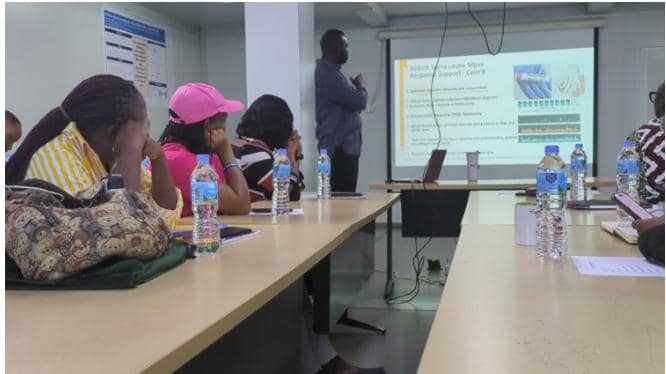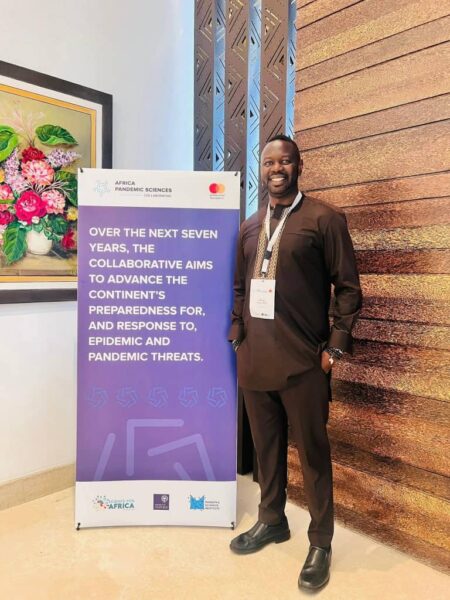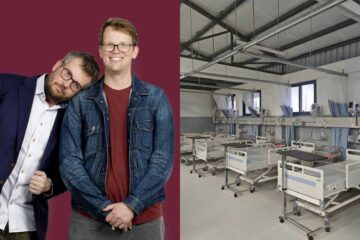
New scientific research led by Project 1808, Inc has revealed a worrying rise in infectious diseases across Sierra Leone. The findings come from several studies carried out by local scientists working with partners from universities in Sierra Leone and abroad.
The research was shared during Project 1808’s first national science dissemination forum held at the Ministry of Health’s Emergency Operations Center. The studies involved scientists from the University of Sierra Leone, Koinadugu College’s Center for Biomedical and One Health Research (CBOHR), and international collaborators.
One of the most troubling results was the discovery of syphilis infections in children under five at the Ola During Children’s Hospital. Researchers say this unusual pattern needs urgent investigation.
Another major concern is the presence of the dengue virus in patients from some of Freetown’s biggest hospitals Connaught, Cottage, Rokupa, and Choithram. Sierra Leone is not officially listed as a high-risk dengue zone, but the detection shows that the virus is already circulating in several communities. Experts warn that dengue can be easily mistaken for Ebola or other deadly fevers because their symptoms look alike.
Scientists also found Bacillus anthracis, the bacteria that causes anthrax, in samples during routine investigations. The discovery was unexpected because the research was not focused on anthrax.
A large part of the studies focused on Acute Febrile Illness (AFI), a sudden fever that can be caused by viruses, bacteria, or parasites. Many common diseases in Sierra Leone such as malaria, Lassa fever and typhoid fall under AFI. The researchers say Sierra Leone still does not have strong systems to track AFI-related sickness and deaths, which means many cases go unreported.
“One of the things we miss a lot is mortality surveillance. Some of the Lassa and Crimean Congo Haemorrhagic Fever deaths, we are missing, even though we know the viruses are circulating,” said Prof. Alhaji U Njai, Project 1808 founder.

Prof. Alhaji U. Njai, founder of Project 1808
Some of the studies were supported by the Abbott Pandemic Defence Coalition (APDC). Their support included work on virus discovery in major hospitals and monitoring unexplained deaths. Other research received funding from the West African Health Organization (WAHO), including the country’s first detailed study on Hepatitis B and Hepatitis D by PhD student Wachen Peters.
Project 1808’s founder, Prof. Alhaji Umar N’jai, also presented early findings from a new wastewater surveillance study for Mpox. The study aims to understand how viruses may move between humans, animals and the environment.
He is also leading a wider West African study with scientists from Liberia, Guinea, Mali and Côte d’Ivoire to strengthen the region’s ability to detect viruses like dengue, zika, chikungunya and Rift Valley fever
Despite these important breakthroughs, the researchers raised concerns about the limits of the country’s scientific equipment and laboratories. Many time-sensitive samples still have to be shipped abroad for advanced testing. Senior scientists say this slows down results and affects the country’s ability to quickly respond to outbreaks.
Prof. Haja Isata Wurie from COMAHS said the country must invest more in laboratory systems and support young researchers.
“We have potential but lack essential capacity,” she said.
Dr. Gebrekrstos Negash Gebru from AFENET Sierra Leone added that the findings should now guide hospitals and health officials in improving diagnosis and patient care.
Prof. N’jai emphasized that Sierra Leone has young scientists with great potential, but they need stronger support at home.
“Training these young scientists is the future,” he said.
“We want them to appreciate research, appreciate science and see that they are part of discovering things around them.”
As Sierra Leone continues to face frequent health threats, the research highlights the urgent need for stronger disease surveillance, better laboratory capacity, and policies guided by scientific evidence to protect the public.









